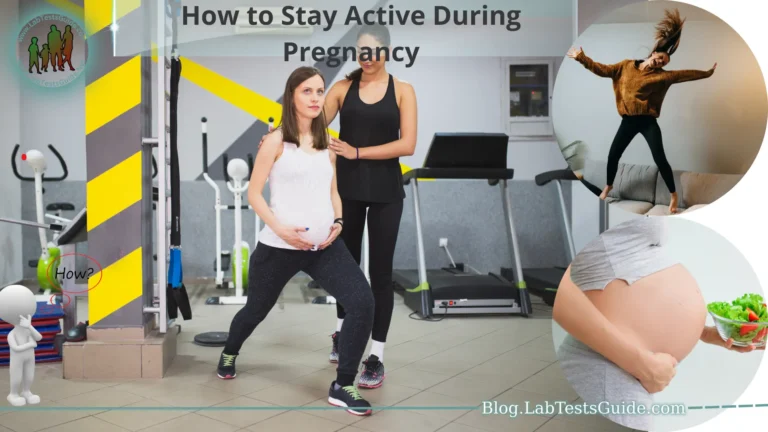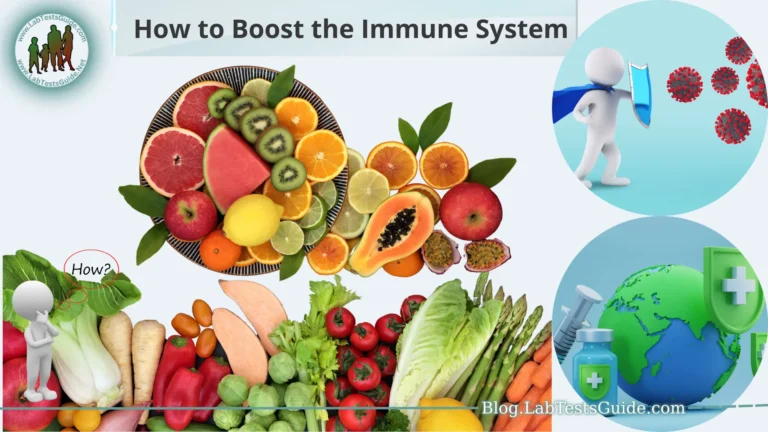Maintaining healthy eating habits is crucial for students as it directly impacts their physical health, mental well-being, and academic performance. By nourishing their bodies with nutritious foods, students can enhance their concentration, energy levels, and overall cognitive function. From understanding the essential macronutrients and micronutrients to practical tips on meal planning, snacking, and eating out, this guide aims to empower students with the knowledge and strategies they need to make informed choices about their diet. By adopting healthy eating habits, students can optimize their potential and establish a foundation for lifelong well-being.

Importance of Healthy Eating Habits for Students:
Here are several key reasons why students should prioritize their diet.
- Physical Health: A balanced and nutritious diet provides the body with the necessary nutrients, vitamins, and minerals to function optimally. It supports proper growth and development, strengthens the immune system, and reduces the risk of various health issues such as obesity, heart disease, diabetes, and nutrient deficiencies.
- Mental Well-being: The food we consume has a direct impact on our mental health. Studies have shown that a healthy diet rich in fruits, vegetables, whole grains, and lean proteins is associated with a lower risk of depression, anxiety, and other mental health disorders.
- Energy and Stamina: Students lead active and demanding lifestyles, requiring sustained energy throughout the day. Healthy eating habits provide a steady supply of energy by balancing blood sugar levels and preventing energy crashes. A diet consisting of complex carbohydrates, lean proteins, and healthy fats ensures a sustained release of energy, enabling students to stay focused, alert, and productive.
- Academic Performance: Proper nutrition plays a vital role in cognitive function and academic achievement. Studies have linked a healthy diet to improved cognitive abilities, memory retention, information processing, and problem-solving skills.
- Disease Prevention: Unhealthy eating habits, such as consuming excessive amounts of processed foods, sugary snacks, and fast food, can contribute to the development of chronic diseases later in life.
- Healthy Body Weight: Maintaining a healthy body weight is essential for overall well-being. Healthy eating habits, combined with regular physical activity, help students maintain an appropriate weight and reduce the risk of obesity.
In summary, healthy eating habits for students are essential for physical health, mental well-being, academic performance, disease prevention, and long-term wellness. By prioritizing a balanced diet and making nutritious food choices, students can unlock their full potential and set themselves up for a healthier future.
Table of Balanced Nutrition:
Macronutrients:
- Carbohydrates: Provide energy and fiber for the body.
- Proteins: Essential for growth, repair, and maintenance of body tissues.
- Fats: Provide energy, support brain function, and help absorb certain vitamins.
Micronutrients:
- Vitamins: Essential for various bodily functions, such as immune system support, energy production, and cell growth.
- Minerals: Required for healthy bones, teeth, and overall body functioning.
Carbohydrates:
- Sources of healthy carbohydrates.
- Understanding the difference between simple and complex carbohydrates.
- The importance of fiber in the diet.
Proteins:
- Complete protein sources (animal-based).
- Incomplete protein sources (plant-based).
- The role of proteins in muscle development and repair.
Fats:
- Differentiating between saturated, unsaturated, and trans fats.
- Healthy fat sources, such as avocados, nuts, and olive oil.
- The importance of omega-3 fatty acids.
Vitamins:
- Essential vitamins and their functions.
- Food sources rich in each vitamin.
- The role of vitamins in maintaining overall health.
Minerals:
- Key minerals and their functions.
- Food sources rich in each mineral.
- The importance of minerals for maintaining bodily functions.
Please note that this table of balanced nutrition is a general outline. Each subtopic can be expanded further to provide more detailed information about specific nutrients, their sources, recommended intake, and their impact on students’ health and well-being.
Breakfast Essentials:
Importance of Breakfast:
- Explain why breakfast is considered the most important meal of the day.
- Discuss how breakfast kick-starts the metabolism and provides energy for the day.
- Highlight the impact of breakfast on cognitive function and academic performance.
Nutritious Breakfast Ideas:
- Offer a variety of healthy options suitable for students.
- Include examples of balanced breakfasts that incorporate carbohydrates, proteins, and fats.
- Provide ideas for quick and easy breakfasts for busy mornings.
Incorporating Whole Grains:
- Emphasize the benefits of choosing whole grain cereals, bread, or oatmeal.
- Explain the difference between refined grains and whole grains.
- Suggest creative ways to incorporate whole grains into breakfast meals.
Protein-Rich Breakfasts:
- Highlight the importance of including protein in breakfast.
- Provide examples of protein-rich breakfast foods such as eggs, Greek yogurt, and nut butter.
- Discuss the role of protein in promoting satiety and maintaining stable energy levels.
Fruits and Vegetables:
- Emphasize the importance of including fruits and vegetables in breakfast.
- Discuss the nutritional benefits and fiber content of different fruits and vegetables.
- Provide ideas for incorporating fruits and vegetables into breakfast smoothies, salads, or omelets.
Healthy Beverage Choices:
- Discuss the impact of beverage choices on overall breakfast healthiness.
- Encourage students to choose water, unsweetened tea, or homemade fruit smoothies over sugary drinks.
- Provide alternatives to sugary juices or sodas.
Planning and Preparing:
- Offer tips for planning and preparing breakfast in advance.
- Discuss the benefits of meal prepping and batch cooking for breakfast.
- Provide time-saving strategies for busy students.
Overcoming Breakfast Skipping:
- Address common reasons why students may skip breakfast.
- Offer solutions to common barriers, such as lack of time or appetite in the morning.
- Highlight the long-term benefits of establishing a breakfast routine.
Remember, the content for each subsection can be expanded with specific examples, recipes, and practical tips to encourage students to prioritize a nutritious breakfast as part of their daily routine.
Smart Snacking:
Importance of Smart Snacking:
- Explain the role of snacks in maintaining energy levels and preventing overeating at main meals.
- Discuss how smart snacking can contribute to a balanced diet and support overall health.
- Emphasize the importance of choosing nutritious snack options over unhealthy alternatives.
Healthy Snack Options:
- Provide a list of nutritious snack options suitable for students.
- Include examples of snacks that contain a combination of protein, fiber, and healthy fats.
- Highlight the benefits of choosing whole foods, such as fruits, vegetables, nuts, and yogurt, as snacks.
Avoiding Unhealthy Snacks:
- Discuss the potential negative impact of sugary snacks, processed foods, and unhealthy snacks.
- Provide strategies for avoiding temptation and making healthier snack choices.
- Suggest alternatives to common unhealthy snacks, such as chips, candies, and sugary drinks.
Portion Control:
- Explain the importance of portion control when snacking.
- Offer tips for practicing mindful eating and avoiding excessive snacking.
- Discuss appropriate serving sizes for different types of snacks.
Snacking on the Go:
Address the challenges of snacking while on the move or in a busy schedule.
Provide ideas for portable and convenient snack options that can be easily carried.
Discuss the importance of planning and preparing snacks in advance.
Healthy Snacks for Studying:
- Highlight the significance of nutritious snacks for sustained focus and brain function while studying.
- Offer snack ideas that can enhance cognitive abilities, such as trail mix, fruits, or energy balls.
- Discuss the importance of staying hydrated and including water-rich snacks while studying.
Smart Snacking at Social Events:
- Discuss strategies for making healthier snack choices at parties, gatherings, or social events.
- Provide tips for navigating buffet-style settings and avoiding excessive calorie intake.
- Suggest alternatives to high-calorie snacks and sugary beverages commonly found at social events.
Remember, the content for each subsection can be expanded with specific examples, recipes, and practical tips to help students make smarter snack choices and maintain a balanced and nutritious diet throughout the day.
Hydration:
Importance of Staying Hydrated:
- Provide general guidelines for daily fluid intake based on age, gender, and activity level.
- Discuss the concept of thirst and how it may not always accurately indicate hydration needs.
- Address the importance of individual hydration needs and adjusting fluid intake accordingly.
Healthy Beverage Choices:
- Discuss the benefits of choosing water as the primary source of hydration.
- Provide alternatives to plain water, such as infused water, herbal tea, or flavored water without added sugars.
- Highlight the importance of avoiding sugary drinks, energy drinks, and excessive caffeine consumption.
Signs of Dehydration:
- Explain the common signs and symptoms of dehydration, such as dry mouth, dark urine, fatigue, and dizziness.
- Discuss the importance of recognizing these signs and taking appropriate action to prevent dehydration.
Tips for Staying Hydrated:
- Offer practical tips for incorporating hydration into daily routines.
- Suggest carrying a reusable water bottle, setting reminders to drink water, or tracking daily fluid intake.
- Provide ideas for incorporating hydrating foods, such as fruits and vegetables, into meals and snacks.
Hydration and Weather Conditions:
- Discuss the impact of weather conditions, such as hot or humid environments, on hydration needs.
- Provide guidance for increasing fluid intake during extreme weather conditions.
- Address the importance of taking precautionary measures to prevent heat-related illnesses.
Remember, the content for each subsection can be expanded with specific examples, tips, and practical advice to help students understand the importance of hydration and adopt healthy hydration habits for optimal well-being.
Planning and Preparing Meals:
Benefits of Meal Planning:
- Discuss the advantages of meal planning, such as saving time, money, and effort.
- Highlight how meal planning can help in maintaining a balanced diet and making healthier food choices.
- Emphasize the potential for reduced food waste and improved portion control through meal planning.
Creating Balanced Meals:
- Explain the concept of balanced meals and the importance of incorporating different food groups.
- Provide guidance on including sources of carbohydrates, proteins, healthy fats, fruits, and vegetables in each meal.
- Offer suggestions for portion sizes and proper meal composition.
Batch Cooking and Meal Prep:
- Discuss the benefits of batch cooking and meal prepping.
- Provide tips for efficient batch cooking, such as choosing recipes that can be easily scaled up, using freezer-friendly containers, and labeling prepared meals.
- Offer ideas for meal prepping, including pre-cutting vegetables, marinating proteins, or assembling ready-to-go meals.
Time-Saving Strategies:
- Provide time-saving strategies for busy students, such as using leftovers, incorporating quick and easy recipes, or utilizing pre-cut/pre-packaged ingredients.
- Discuss the benefits of multitasking in the kitchen, such as cooking multiple components simultaneously.
- Suggest utilizing online resources, meal planning apps, or recipe databases for inspiration and efficiency.
Tips for Healthy Grocery Shopping:
- Discuss strategies for making healthier choices while grocery shopping.
- Offer tips for reading food labels, selecting fresh produce, and avoiding impulse purchases.
- Discuss the benefits of shopping with a grocery list and planning meals based on seasonal ingredients.
Remember, the content for each subsection can be expanded with specific examples, recipes, and practical tips to help students effectively plan and prepare meals that meet their nutritional needs, time constraints, and budget considerations.
Developing Personal Values:
- Encourage students to develop and define their personal values and beliefs.
- Discuss the importance of aligning choices and actions with personal values.
- Help students understand that it’s okay to be different and make choices that reflect their own values, even if they differ from their peers.
Remember, the content for each subsection can be expanded with real-life scenarios, practical tips, and role-playing exercises to help students navigate peer pressure and make independent, healthy choices that align with their personal values and well-being.
Healthy Snacks for Studying:
Importance of Healthy Snacks:
- Discuss the role of snacks in providing energy and maintaining focus during study sessions.
- Highlight the impact of nutrition on cognitive function and concentration.
- Emphasize the importance of choosing nutrient-rich snacks over processed and sugary options.
Balanced Snacking:
- Discuss the concept of balanced snacking and the importance of incorporating different food groups.
- Offer examples of snacks that include carbohydrates, proteins, and healthy fats.
- Highlight the benefits of balanced snacking in terms of sustained energy levels and improved focus.
Fresh Fruits and Vegetables:
- Recommend fresh fruits and vegetables as nutritious and refreshing snack options.
- Provide examples of portable fruits like apples, bananas, and berries.
- Suggest vegetable sticks with hummus or yogurt-based dips for added nutrients.
Nuts and Seeds:
- Discuss the nutritional benefits of nuts and seeds.
- Offer examples of snack options such as almonds, walnuts, pumpkin seeds, or trail mix.
- Highlight their high protein and healthy fat content for sustained energy.
Yogurt and Cottage Cheese:
- Recommend yogurt or cottage cheese as protein-rich and satisfying snacks.
- Discuss the benefits of probiotics in yogurt for gut health.
- Suggest topping yogurt with fruits or adding a sprinkle of granola for added texture and flavor.
Whole Grain Snacks:
- Highlight the importance of choosing whole grain snacks for sustained energy release.
- Offer examples of whole grain snacks, such as whole grain crackers, rice cakes, or popcorn.
- Discuss the benefits of fiber in promoting satiety and supporting digestive health.
Homemade Energy Bars or Bites:
- Encourage students to prepare homemade energy bars or bites using wholesome ingredients.
- Provide simple recipes using nuts, seeds, dried fruits, oats, or nut butters.
- Discuss the advantages of homemade snacks in terms of controlling ingredients and avoiding added sugars.
Hydration:
- Remind students of the importance of staying hydrated while studying.
- Encourage drinking water or herbal tea as a healthy alternative to sugary drinks.
- Suggest infusing water with fruits or herbs to add flavor.
Remember, the content for each subsection can be expanded with specific examples, recipes, and practical tips to help students choose and prepare nutritious snacks that support their concentration and energy levels during study sessions.
Conclusion:
In conclusion, developing healthy eating habits is crucial for students to maintain optimal physical and mental well-being. By prioritizing nutritious food choices and adopting healthy eating practices, students can fuel their bodies and minds for improved academic performance, concentration, and overall health.
Throughout this guide, we have explored various aspects of healthy eating for students. We discussed the importance of balanced nutrition, including essential food groups and portion control. We explored breakfast essentials, smart snacking options, packed lunches, hydration, and the significance of planning and preparing meals. Additionally, we addressed the influence of peer pressure and social influences on food choices and provided strategies to resist negative pressures.
Furthermore, we highlighted the possibility of maintaining healthy eating habits even on a budget by utilizing smart shopping strategies, cooking from scratch, and incorporating affordable nutritious foods. Lastly, we offered suggestions for healthy snacks to fuel studying sessions, promoting sustained energy levels and mental focus.
Remember, developing healthy eating habits is a continuous journey that requires mindful choices and consistency. By making informed decisions, seeking support, and embracing positive influences, students can establish a foundation for a lifetime of healthy eating and well-being. So, prioritize your health, nourish your body with nutritious foods, and enjoy the benefits of a healthy lifestyle throughout your student years and beyond.






